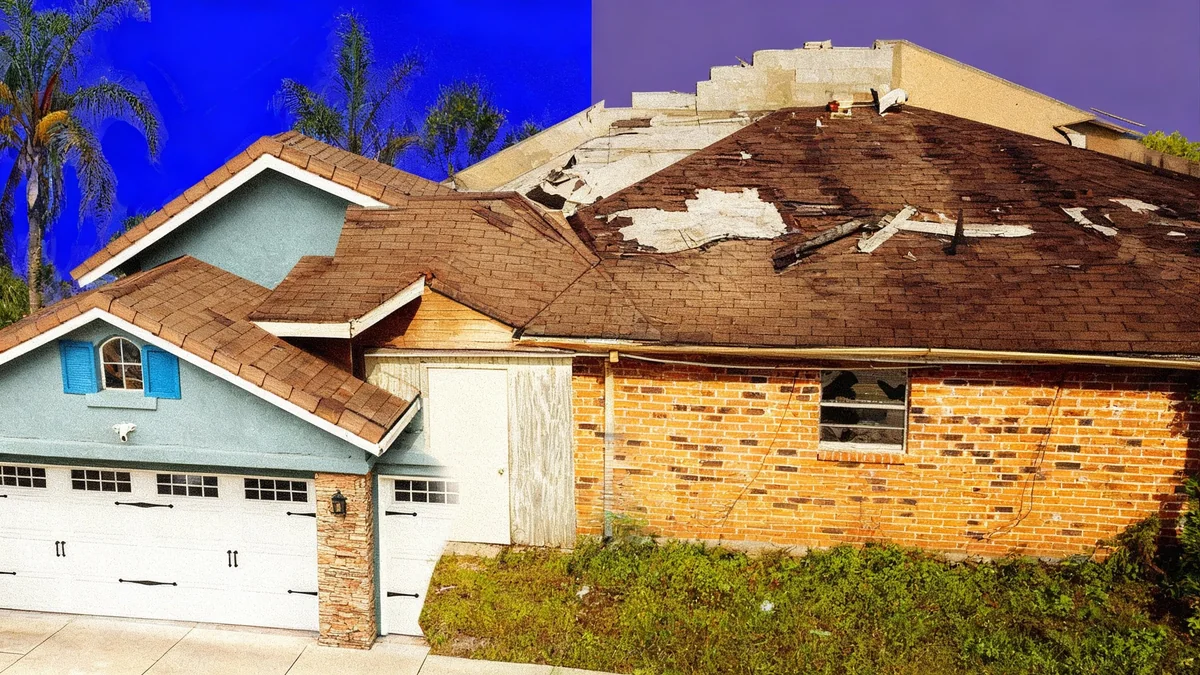The dream home you see online may not be entirely real. A growing number of real estate agents are using artificial intelligence to create property listings, from video tours of empty rooms to digitally altered photographs, raising concerns among homebuyers about transparency and deception.
While the technology offers significant cost and time savings for realtors, consumers are reporting an increase in misleading images that feature everything from non-existent furniture to structural changes, blurring the line between marketing enhancement and outright fabrication.
Key Takeaways
- An estimated 80% to 90% of real estate professionals are now using AI tools in their work.
- AI is used to generate video walkthroughs, virtually stage empty homes, and write property descriptions.
- Homebuyers have reported seeing AI-generated images with significant inaccuracies, such as stairways leading to nowhere and altered home exteriors.
- Industry experts are divided, with some embracing the efficiency while others warn of ethical risks and the potential for legal action over deceptive practices.
The New Age of Digital Home Showings
Artificial intelligence is rapidly changing how properties are marketed. Tools that can turn a few static photos of an empty house into a fully furnished video tour are becoming commonplace. One such application, AutoReel, is reportedly used to create between 500 and 1,000 new listing videos every day.
Alok Gupta, cofounder of AutoReel, explained that agents can generate these videos in minutes from their desks. He claims the technology can save realtors "$500 to $1,000" and up to a week's turnaround time compared to hiring professional videographers. This efficiency is driving massive adoption across the industry.
Widespread Adoption
According to Dan Weisman, director of innovation strategy at the National Association of Realtors (NAR), the uptake is significant. "We’ll ask out of 100 people in the audience how many are using AI, and I’d say 80 to 90 percent of people raise their hand," Weisman noted, describing a "huge uptick" in usage.
Beyond video, AI is used for virtual staging—digitally adding furniture and decor to photos of vacant rooms. This practice has existed for years, but generative AI has made it faster and cheaper than ever before, eliminating the need for specialized staging companies that could charge hundreds of dollars and take several days.
Buyers Confront a Distorted Reality
While agents embrace the new tools, prospective buyers are encountering listings that feel less than authentic. Elizabeth, a homeowner in rural Michigan, noticed something was wrong while browsing local listings to monitor her own property's value.
"I’ve truly seen actual pictures of a house fed through AI," she said. Elizabeth first noticed a strange yellowish hue, a common sign of some AI image generators. "As I was scrolling through the photos, I noticed that some things just weren’t making sense. There were stairways leading to nowhere."
Her suspicions were confirmed when she found a separate, unaltered listing for the same property. In the AI-edited versions, kitchen cabinets were missing, backyard pavement had been replaced with grass, and windows were resized. "This is misleading. It’s distorting the features of the house," she stated.
"We’ve entered a whole new realm."
This is not an isolated incident. Social media platforms have seen a rise in complaints about digitally altered listings. Examples include a tiny New York City loft that was expanded to look like a master bedroom and a Detroit house that was given a completely new roof in its online photos.
An Industry Divided on Ethics and Disclosure
The real estate industry is grappling with the ethical implications of these powerful tools. Some professionals argue that AI is simply the next evolution of marketing, similar to using a fish-eye lens to make a room appear larger.
"Why would I send my photos of an empty room to a virtual stager, have them spend four days and send it back to me at a charge of 500 bucks when I can just do it in ChatGPT for free in 45 seconds?" asked Jason Haber, cofounder of the American Real Estate Association. He compared it to the virtual renderings that have been used for two decades.
The Rules of Engagement
The National Association of Realtors' code of ethics prohibits the use of misleading images. However, the legal territory surrounding AI-generated content is still described as "murky." Industry leaders like Haber stress that real estate professionals must disclose when AI has been used to alter images, just as they have for traditional virtual staging.
Haber also warned against lazy implementation, pointing out that AI-generated property descriptions often contain repetitive phrases. He noted that ChatGPT frequently inserts the word "nestled" into its output, a telltale sign that an agent has simply copied and pasted the text without review.
Eroding Trust in a High-Stakes Market
Despite the push for disclosure, some fear the damage to consumer trust is already being done. Buying a home is often the largest financial decision a person will make, and transparency is critical.
Nathan Cool, a real estate photographer, remains skeptical. While he has experimented with AI tools, he believes that authentic visuals are still paramount. He pointed out that AI can still make mistakes, or "hallucinate," by inserting objects that don't exist, such as a fake couch appearing in a room.
Even when the AI is convincing, the risk of alienating buyers is high. Cool argues that many people are already tired of AI-generated content on social media and that the stakes are much higher when it comes to real estate.
"People that want to buy a house, they’re going to make the largest investment of their lifetime," he said. "They don’t want to be fooled before they ever arrive."





